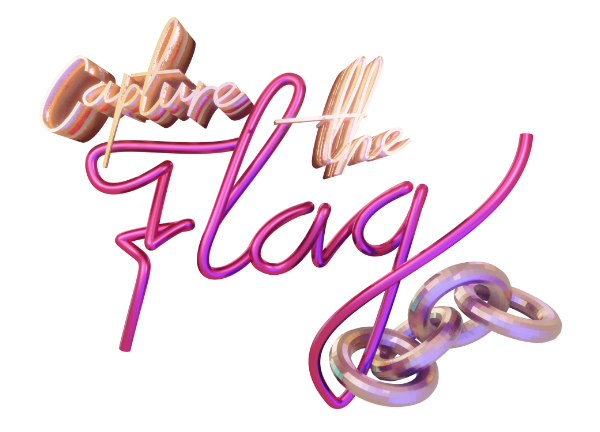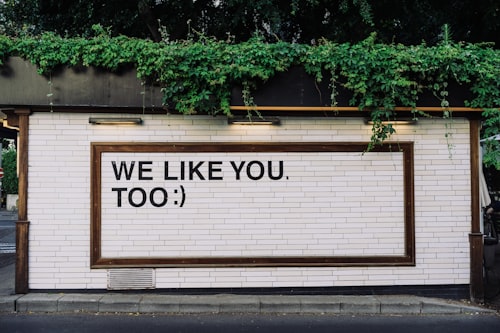One abstraction to explain DAOs is that it is a bank account on a blockchain. A group of people can collectively manage and control assets and resources. In traditional organizations, on the other hand, there is a legal entity and a (traditional) bank account, and resources are usually managed through that account - usually more or less by one person at a time. The risk is that it can be closed by the government or that one person can embezzle funds, be reckless with them, or simply abuse their power because they have access to the bank account.
With DAOs, no bank account is tied to a central authority; rather, the value is tied to the blockchain and can be transferred accordingly within the blockchain without relying on a central authority. In addition, a smart contract can be made with the DAO to create funds, which provides full transparency on who is accessing the funds, and this access could, for example, only be collective or proposed by the collective.
The term DAO has been watered down somewhat - an autonomous organization could basically be something like a fully anarchist organization; like one that is not dependent on the state. Not every organization with a smart contract is autonomous or decentralized - rather, it is augmented by smart contracts. Of course, a DAO, for example, regulates shareholder voting, disputes, and accounting matters, as well as the organization's behavior and operating rules through the use of smart contracts, thus ensuring "social justice."
The main differences to a Traditional Top-Down-Organization could be the following:
| Traditional Top-Down Organizations | Centralized Autonomous Organizations |
|---|---|
| Top-down management | Distributed network of autonomous actors |
| One legal entity | No centralized legal entity |
| Employment contracts | No employment contracts |
| Many management levels to coordinate and enforce processes. Many information and decision bottlenecks and sources of corruption. | Machine consensus around token governance rulebooks and smart contracts instead of legal employment contracts. |
DAO Service Management Platforms
In 2016, one of the first DAOs, The DAO (Wikipedia), was developed and became the world's largest crowdfunding project at that time. Since then, a number of DAOs have been launched, such as Aragon DAO, DAOstack, Colony, and so on.
DAO service management platforms provide the ability to design, create, and manage enterprises, open source projects, foundations, hedge funds, and NGOs.
Idavoll Network
The Idavoll Network is a decentralized organizational platform that provides infrastructure and services to Idavoll Network and Polkadot Parachains users. Each Idavoll Network organization consists of a set of modules that define the organization's actors and their associated rights and privileges. Each Ethereum-based DeFi can run its governance process on the Idavoll Network through Polkadot Bridges.
Aragon
Aragon focuses on providing a "secure and common framework for building a general organization" rather than building products around specific decision-making mechanisms.
Aragon is built on the Ethereum blockchain. It aims to create an ever-growing ecosystem of dApps, crypto protocols, and DAOs that would compete with each other in the form of governance capitalism. The goal is to find the most effective governance model that can later be implemented in real organizations and institutions.
Internal decisions, developments, and disputes are governed by a code of basic principles called the Aragon Manifesto. Some of the guiding values in this document are:
- Freedom of choice
- Discouragement of violence
- Decentralization of power
- Long-term value versus short-term gain
- User participation
Anyone wishing to develop a new project on Aragon must abide by these rules. The developers consider this document in its "alpha" form and expect the community to evolve it over time.
Limited Liability Autonomous Organizations (LAOs)
LAOs are DAOs that are wrapped in a legally compliant entity, such as an LLC or C-Corp. The LAO can enter into legally enforceable contracts, hold assets outside the chain (e.g., SAFTs), and pay dividends. Investors in an LAO must be accredited, but service providers who are compensated in LAO shares can earn their shares of the LAO portfolio.
Moloch
Moloch is an Ethereum endowment program for funding infrastructure projects on Ethereum. Unlike Aragon, whose moral roots lie in the fight against bad government, and DAOstack and Colony, which oppose the dysfunctionality of human organization, Moloch's foundations are solidly rationalist and cryptoeconomic, rooted in Trauma of TheDAO, among other things.
Members are anonymous, voting and ETH donations are handled through the chain, and voting rights are determined by the number of ETH donations. If one member has a large number of votes and makes "wrong" investment decisions, the other members can drop out; ETH funds from the pool are then distributed according to voting shares.
One technical achievement is the "rage exit" innovation (see whitepaper, page 5), where participants can exit (with their share of resources) if they are unhappy with the decisions of their fellow members. This innovation discourages ill will and implicitly exerts social pressure on participants to align with organizational goals.
Moloch v2 (with legal compliance)
The LAO, in collaboration with the Moloch DAO and OpenLaw teams and MetaCartel Ventures, has introduced a number of enhancements to the original Moloch v1 smart contract design to support revenue-generating DAOs.
The current Moloch v2 contract standard was developed in collaboration between MetaCartel, ConsenSys's The LAO, and Moloch. The MetaCartel Venture DAO is the first application of Moloch v2.
| MetaCartel Ventures | The LAO | |
|---|---|---|
| Official Website | www.metacartel.xyz | www.thelao.io |
| Highlight | MetaCartel Ventures is a for-profit DAO project associated with a legal entity. MCV has all the features of a traditional venture capital fund, but lowers the barriers to entry for those who want to participate. | LAO is an autonomous limited liability organization backed by OpenLaw that provides legal and fundraising support to new Ethereum companies. |
| Size | Grantees collectively raised $5.5M+ (see MetaCartel 2020 Recap, January 4, 2021) | 14,809.82 ETH contributed |
| Future Strategy | MetaCartel Ventures will continue to support the development of the DApp ecosystem and web3, which is dedicated to building and connecting encrypted application layer communities. | In the long term, it is hoped that multiple LAOs can be built on top of other protocols to ensure that protocol developers and other early supporters of the protocol can continue to drive the development of the network. |
| Members | 64 members | Limited to accredited investors and 99 members (current number unknown) |
| Investments | 20 Projects | 62 Projects |
| Focus Area | Application Level | Focus on Ethereum ecosystem development, especially startup projects, and investor engagement. |
| Token (Yes/No) | No | Yes |
| Governance | Members are divided into three categories: Mages, Goblins, and Summoners. 1. Mages - Those who actively procure business, perform due diligence, and manage assets. Requires active participation and consists primarily of non-accredited investors. 2. Goblins - Passive investors who contribute funds to the DAO that are invested in deals. This role is assigned to accredited investors who wish to contribute without actively raising deals. Summoners - Operational delegates for MCV who are responsible for coordination, legal, and financial tasks for the DAO to make investments in a specific deal, facility, or company. |
OpenLaw allows LAO to be established as a traditional legal entity. Voting for the project is based on the LAO share held by members. All shares are tokens and protected by official legal documents. Members can also leave the DAO by "ragequitting". To accept the investment, the project part must apply to become a legal entity in Delaware. After accepting the funding, it is necessary to continue to comply with existing laws and regulations under the supervision of OpenLaw. |
| Social Media | Twitter: 5,605 | Twitter: 5,785, Telegram: 1,648 |
| How to Join | To join DAO as an investor, there are three requirements: 1. Legally accredited investor 2. Assets held meet the standard of DAO restriction 3. Capital injected meets the minimum standard of entry requirements. |
Only those who meet the legal definition of an "accredited investor" in the US can participate. A commitment of 120-1080 ETH is required to receive a 1-9% share. |
Original source: IOSG Venture, June 2, 2020; updated: March 31, 2021 Axel Quack
Moloch-as-a-Service: DAOhaus
[DAOhaus] (https://daohaus.club/) strives to be "the most forward-thinking, user-friendly DAO experience." DAOhaus allows people to discover and join existing DAOs, as well as create individual DAOs. Starting a DAO on DAOhaus provides a landing page where others can commit to joining. In addition, the DAO offers services such as:
- Custom Themes
- Discord notifications
- Discourse Forum
- Gnosis Safe
- Offchain voting
- Liquidity Pools
- NFT Banks
Final Thoughts
DAOs may have their limitations, but the mere idea of letting an entire collective decide how to manage and operate an enterprise is enough to sustain the enthusiasm for decentralized, autonomous organizations.
It's actually amazing how widespread DAOs already are, as almost all major DeFi applications, from Uniswap to Aave to MakerDAO, are now powered by DAOs.
The website and the information contained therein are not intended to be a source of advice or credit analysis with respect to the material presented, and the information and/or documents contained on this website do not constitute investment advice.

